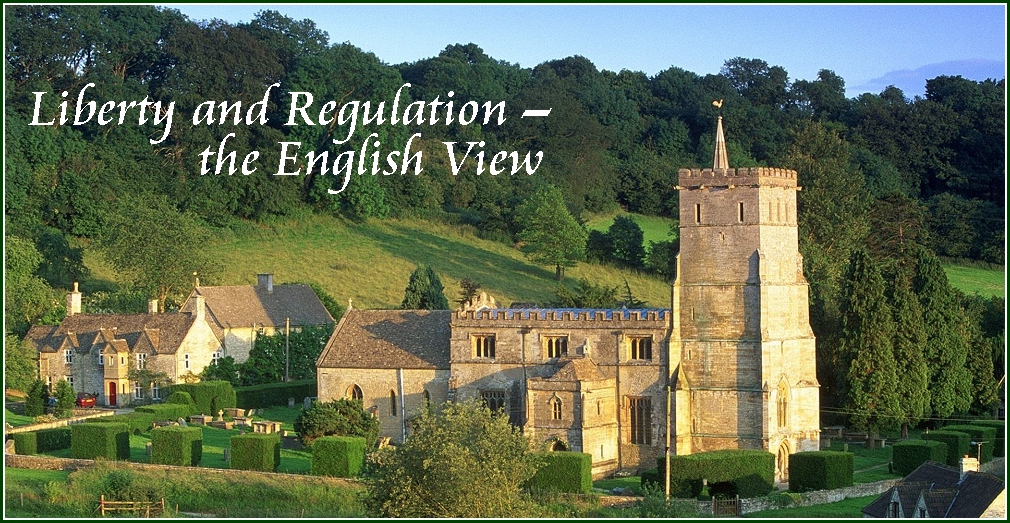There are things in our lives, traditions, principles, ideals, which are so basic and fundamental we take them for granted and rarely give them a passing thought. Take for example the Presumption of Innocence. It is one of the foundation stones of justice throughout the world. Another example is the Presumption of Liberty.
The Presumption of Liberty is the presumption that we are all basically free to do whatever we like, the only justification for laws and regulations limiting that freedom being that whatever we do, we should not in the process harm or endanger others, individuals or the collectivity.
The idea is well summarized by Lord Denning, an outstanding figure in British justice, in his book ‘The Family Story’: “Each man should be free to develop his own personality to the full; the only restrictions upon this freedom should be those which are necessary to enable everyone else to do the same”.
Applied in government, the principle is clear and simple. In the words of Thomas Jefferson, in his inaugural address to Congress as President in 1801: “the purpose of government is to prevent men from injuring one another”.
We cannot all have absolute freedom in our social relationships with one another.
Absolute freedom includes freedom to limit or indeed eliminate the freedom of another or others.
The best we can do is to maximize freedom, and this we achieve when we all accept certain limitations on our individual freedoms so that we do not infringe the freedom of others.
This concept of shared, limited freedom we call “liberty”.
A Land of Liberty is a land in which we are all subject to some restraint in those actions which are harmful or detrimental to others. In this way, the general liberty can be maximized.
The application of such restraint defines the purpose of government.
Society needs government, law and order to provide protection from robbery, violence, and the excesses of individual power, and from dishonesty and deception in commerce and industry.
Society needs government to resolve conflicting demands on the natural resources, and to prevent pollution and destruction of the shared environment.
In short, and in the clear concise language of Thomas Jefferson,
“the purpose of government is to prevent men from injuring one another“.
But it is equally important to define the limitations of government power.
Jefferson also sought to guard against excessively intrusive and dictatorial government, and to ensure that government fulfills its duties effectively without waste and at minimum cost, summarizing these ideals in his first Inaugural Address given on March 4th, 1801:
“A wise and frugal Government, which shall restrain men from injuring one another
yet leave them otherwise free to regulate their own pursuits of industry and improvement,
and which shall not take from the mouth of labor the bread it has earned:
this is the sum of good Government necessary to complete the circle of our felicities”.
The purpose and limitation of government is thus clearly defined:
Where there is Injury, there must be Protection.
Where there is no Injury,
there is neither cause nor justification
for the interference of law and the exercise of its power.
Reading this in Britain, most Commonwealth countries or the USA, one might say... Well yes. It’s nice to be reminded from time to time. But it’s all quite obvious.
It may be quite obvious to citizens of Britain, the Commonwealth or USA, but it is by no means obvious to citizens of Europe. Indeed quite the contrary.
Throughout continental Europe the prevailing principle is a Presumption of Regulation. Regulation should be universal, and minutely detailed. There are those actions which are forbidden and those which are obligatory. Ideally there should be nothing in between, no room for doubt or uncertainty. A Swiss jurist once commented only partially in jest: “Everything in Switzerland is forbidden, except that which is obligatory”. In Europe, regulation prevails.
The Anglo view is that Liberty prevails; and any law which restricts our liberty must be openly justified on the grounds that it is harmful to others or to the collectivity.
That inherent conflict of view, largely unspoken but instinctively felt, was the impetus behind the LEAVE vote. There are those who say we will regret it economically. One hopes not. But we must never regret it politically.



